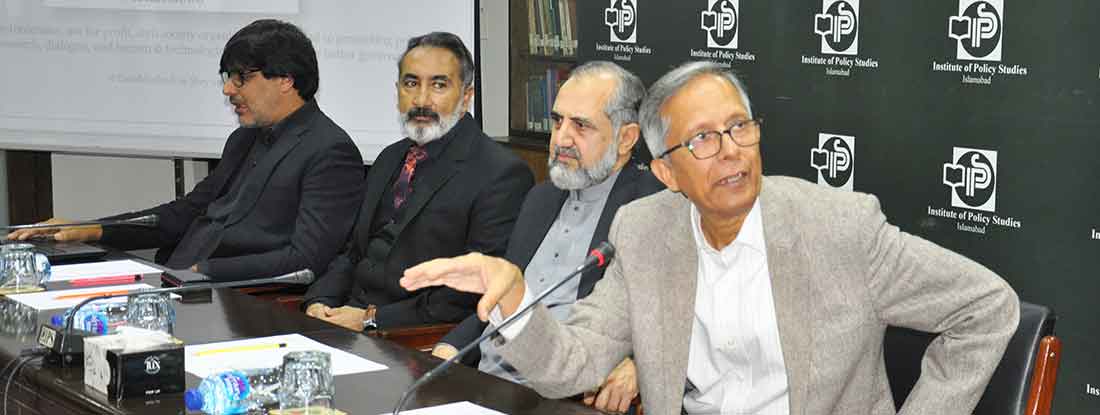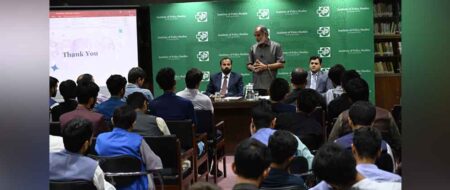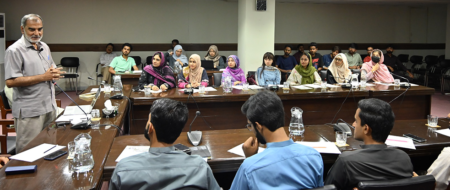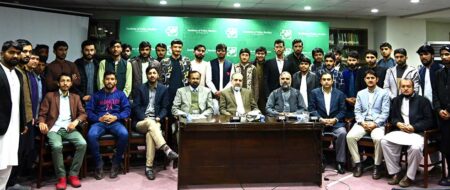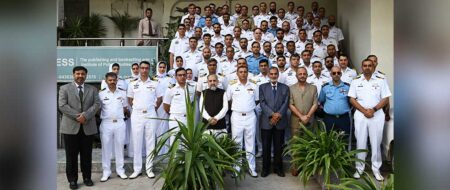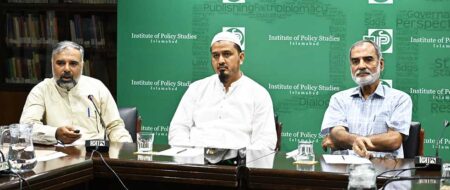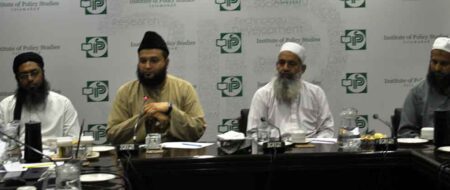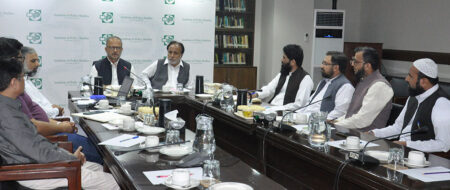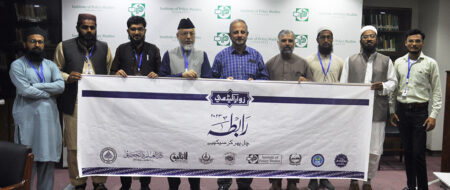Afghanistan advised to develop, build upon national potential to address post-conflict reconstruction challenges
Notwithstanding the challenges of the current situation, Afghanistan should focus and build on the opportunities to develop national potential and address internal and external issues peacefully. For this, it is important to provide assistance to Afghanistan since the country’s stability benefits the whole region. As Pakistan has been contributing to Afghanistan’s development, it needs to discuss, analyze, and probe new opportunities and avenues where it can help Afghanistan in post-conflict reconstruction and building its potential.
This was the crux of discussion with a delegation of 30 young Afghan scholars and professors, receiving capacity-building training at the Centre for International Peace & Stability (CIPS), NUST, which visited IPS on November 16, 2022 on an exposure visit. The delegation, headed by Tughral Yamin, dean, CIPS, NUST, and Dr. Aqab Aalik, associate professor, CIPS, NUST, was addressed by Vice Chairman IPS Ambassador (r) Syed Abrar Hussain and Sr IPS Associate Brigadier (r) Said Nazir Mohmand.
The delegation interacted with the speakers and talked about Pak-Afghan relations, community, social, and political challenges being faced by Afghanistan, and the future of Afghanistan and the region.
Talking about Pak-Afghan relationship, Abrar Hussain underscored that Pakistan and Afghanistan have a brotherly relationship and there are more commonalities than differences between the two countries. These commonalities mark the historical bilateral relation that extends to political, economic, defense, cultural, and people-to-people contact domains.
Despite differences in political ties, the cultural and people-to-people contact is strongest between Pakistan and Afghanistan as there was a time when more than 50,000 people crossed the borders through Chaman and Torkham daily.
He further emphasized that Pakistan has always been a well-wisher trying to bring peace to Afghanistan by extending its political and diplomatic support. For example, Pakistan initiated the Murree talks and quadrilateral talks and supported the Doha Agreement.
Moreover, the uplift of the economic and development potential of Afghanistan has been a priority of Pakistan. Hosting millions of Afghan refugees, bilateral trade, economic assistance packages to Afghanistan, and support to young Afghan students by offering them scholarships and academic opportunities and building faculties in Afghan universities are some expressions of this effort.
Abrar Hussain stated that Afghanistan should not ignore the efforts of Pakistan as the future of both states is in moving forward together. However, in order to bring collective stability to the region and bilateral ties, he stressed that both states must stop badmouthing each other and adopt a balanced foreign policy. He emphasized that both countries need to prioritize building and capitalizing on commonalities instead of highlighting the differences.
He further noted that the future holds many investment opportunities for Pakistan in Afghanistan, blessed with resources worth millions of dollars.
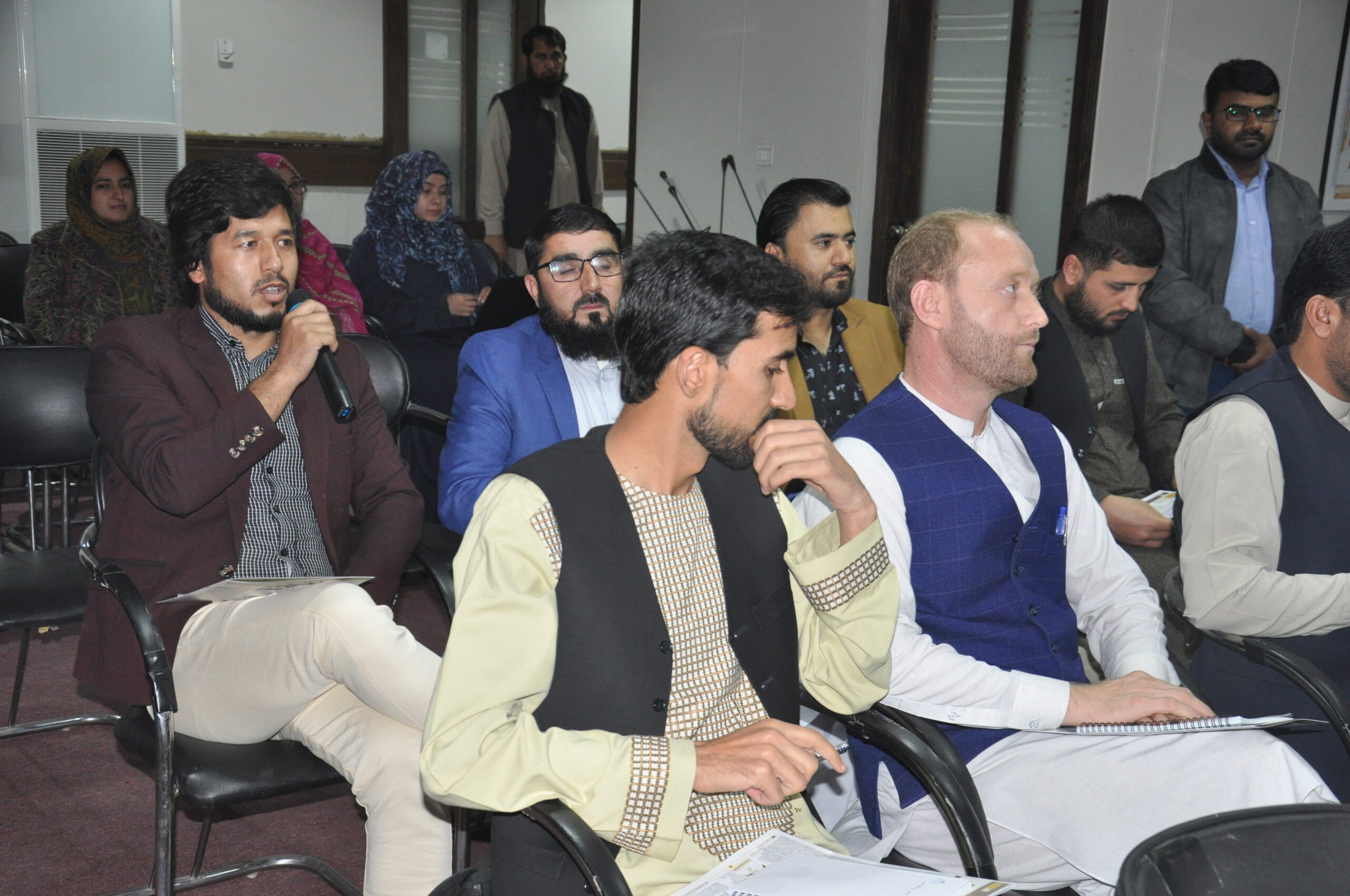 |
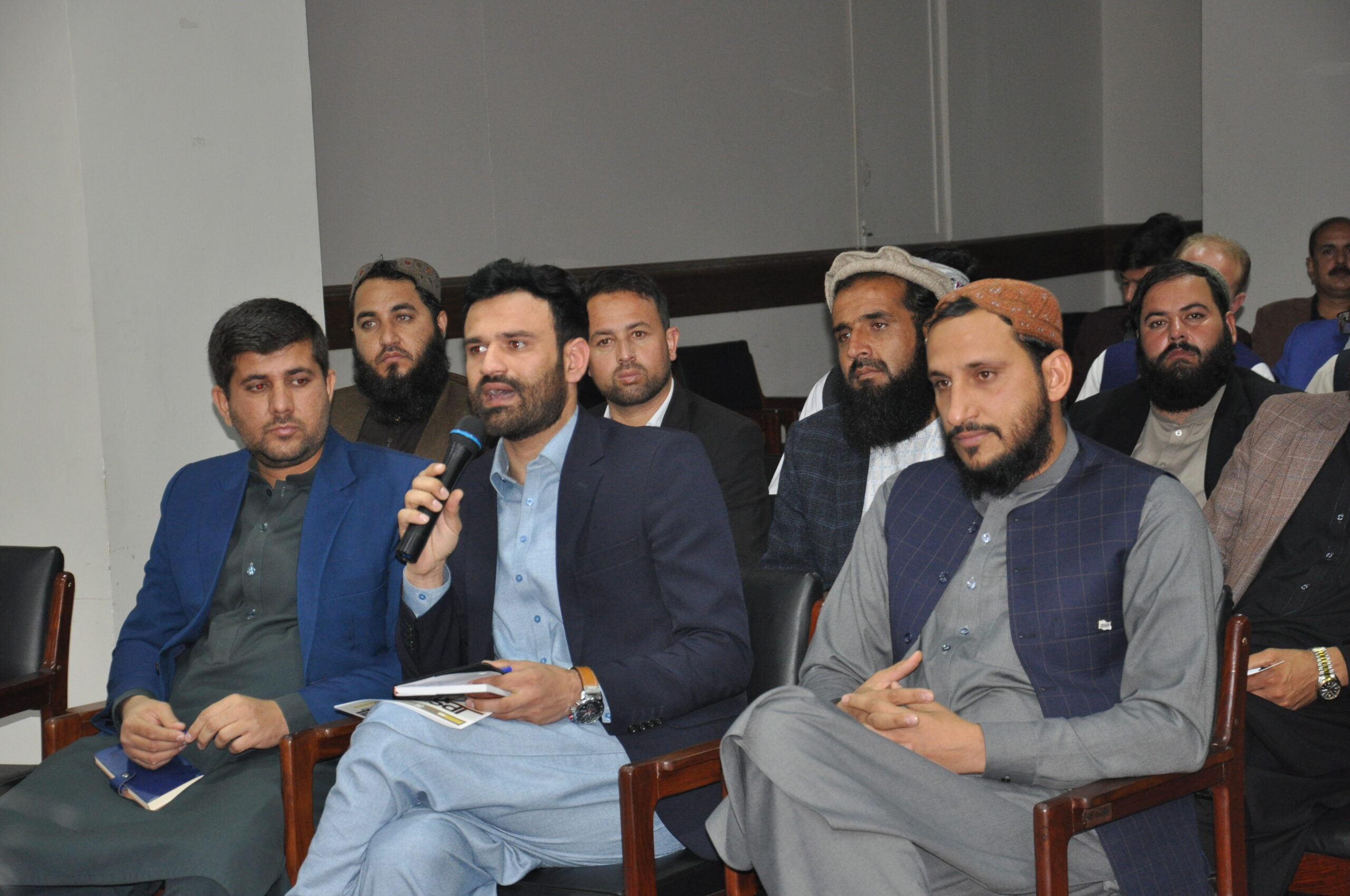 |
Said Nazir endorsed the idea and added that Pakistan can invest in Afghanistan in the energy sector, infrastructure development, communication network building, etc. Additionally, perception management is the foremost requirement to understand each other and collectively build stable and cooperative bilateral and regional ties.
He maintained that the transition process of Afghanistan from war to peace, stability, progress, and economic stabilization is going to be a long journey. However, despite the challenges presented by the contemporary situation, Afghans should keep in mind that with challenges come opportunities, which should remain the prime focus to build national potential and address internal and external challenges peacefully.
He highlighted that Afghanistan can create a peaceful environment by upholding its international commitment that its soil would not be used against any other state, keeping a check on militant organizations and other factions which may act to destabilize the country, and conforming its policies to contemporary times and modern world requirements by setting up relevant institutions.
Furthermore, Afghanistan needs to develop proper mechanisms for border management through mutual understanding and cooperation, governance deliverance, people emancipation, justice system, health sector, and education as essential elements to national development and social progress.


